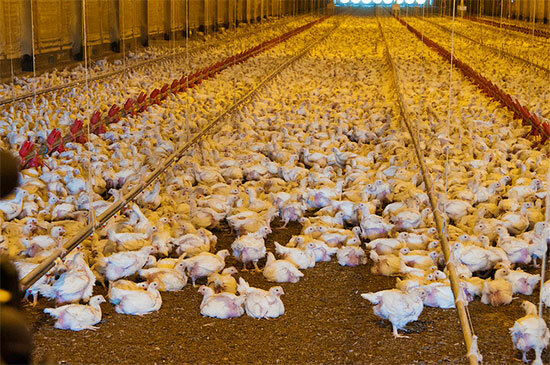Antibiotics, hormones increasingly found in livestock and poultry manure
Manure spills could pose threats to human health and the environment.
Growing scientific evidence shows that pathogens, antimicrobials and hormones are increasingly appearing in livestock and poultry manure across the United States, according to a literature review prepared by the U.S. Environmental Protection Agency (EPA).

Image courtesy USDAgov/Flickr
These “contaminants of emerging concern”—so named because their risks to human health and the environment may be unknown—could pose threats to plants, animals and people if rain, spills or storage failures push contaminated manure into rivers and streams.
The flow of manure into our waterways has long been linked to nutrient pollution. According to 2010 estimates, manure accounts for 19 percent of the nitrogen and 26 percent of the phosphorous entering the Chesapeake Bay, where it fuels the growth of algae blooms and creates dead zones that suffocate marine life. But research now shows that more of the nation’s manure could contain a new class of pollutants that could have serious implications for water quality.
Manure can contain pathogens, for instance, that could infect humans if allowed to contaminate our drinking water or food crops. It can contain antibiotics and vaccines that could facilitate the development of antimicrobial resistance. And it can contain natural and artificial hormones that, even in low concentrations, could affect the reproductive health and fitness of fish, frogs and other marine life.
Indeed, good manure management has become a key conservation practice in the watershed, where four states—Delaware, Pennsylvania, Maryland and Virginia—rank among the ten highest manure-generating states, according to the U.S. Department of Agriculture (USDA). As livestock and poultry production shift to larger, more concentrated operations, facilities produce more manure than can be used on the surrounding farmland. If this manure is properly applied, stored and transported, it can be kept out of rivers, streams and the Bay.
Learn more about contaminants in livestock and poultry manure.

Comments
There are no comments.
Thank you!
Your comment has been received. Before it can be published, the comment will be reviewed by our team to ensure it adheres with our rules of engagement.
Back to recent stories